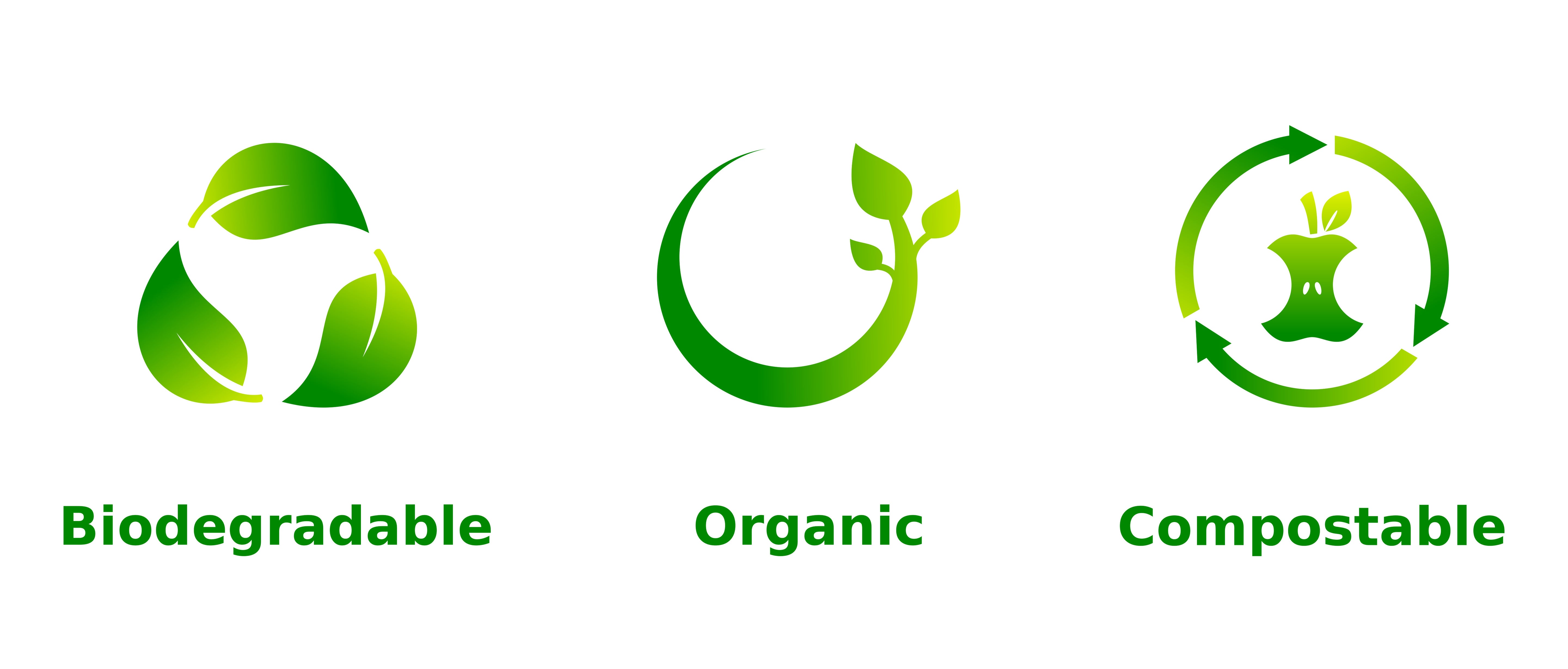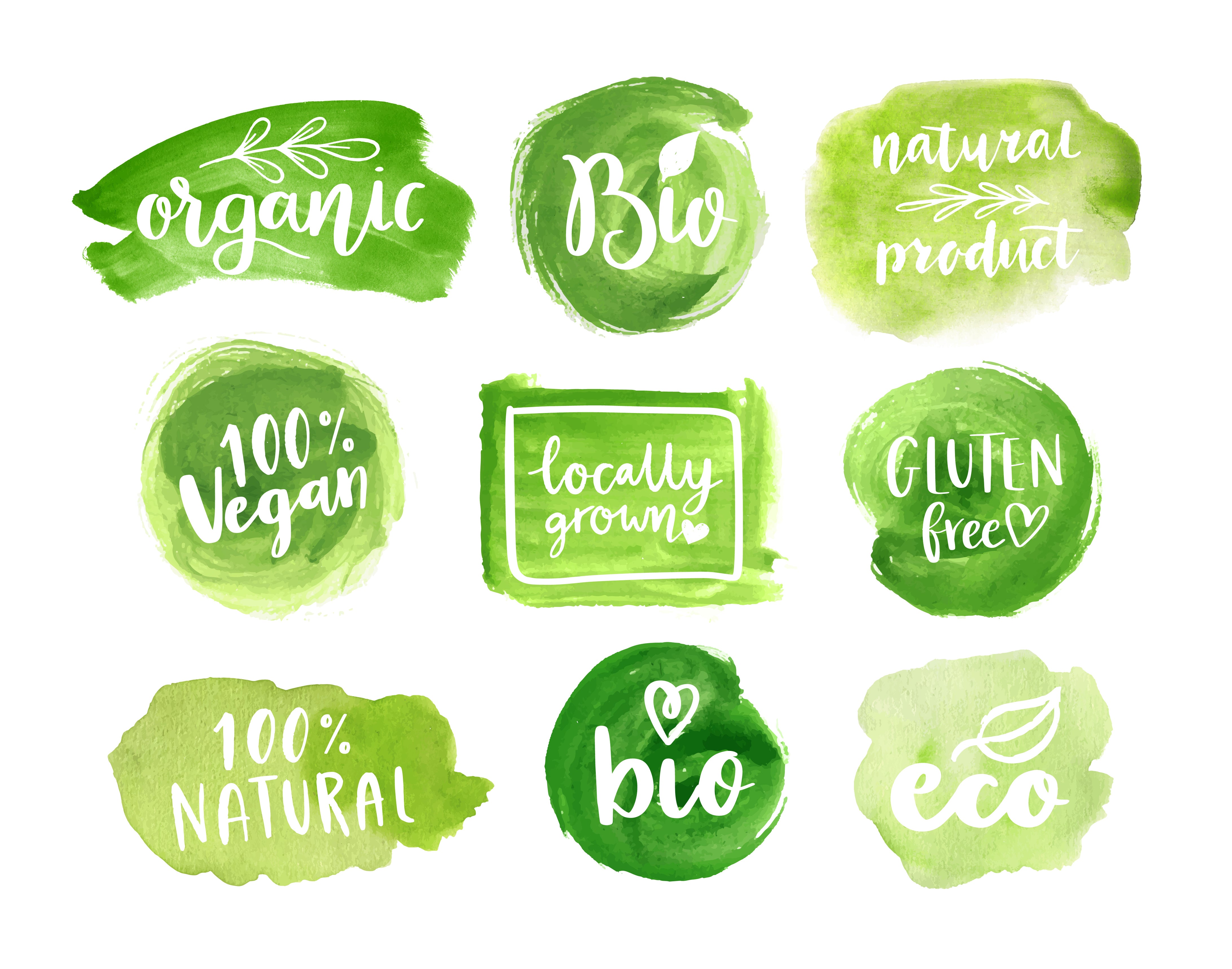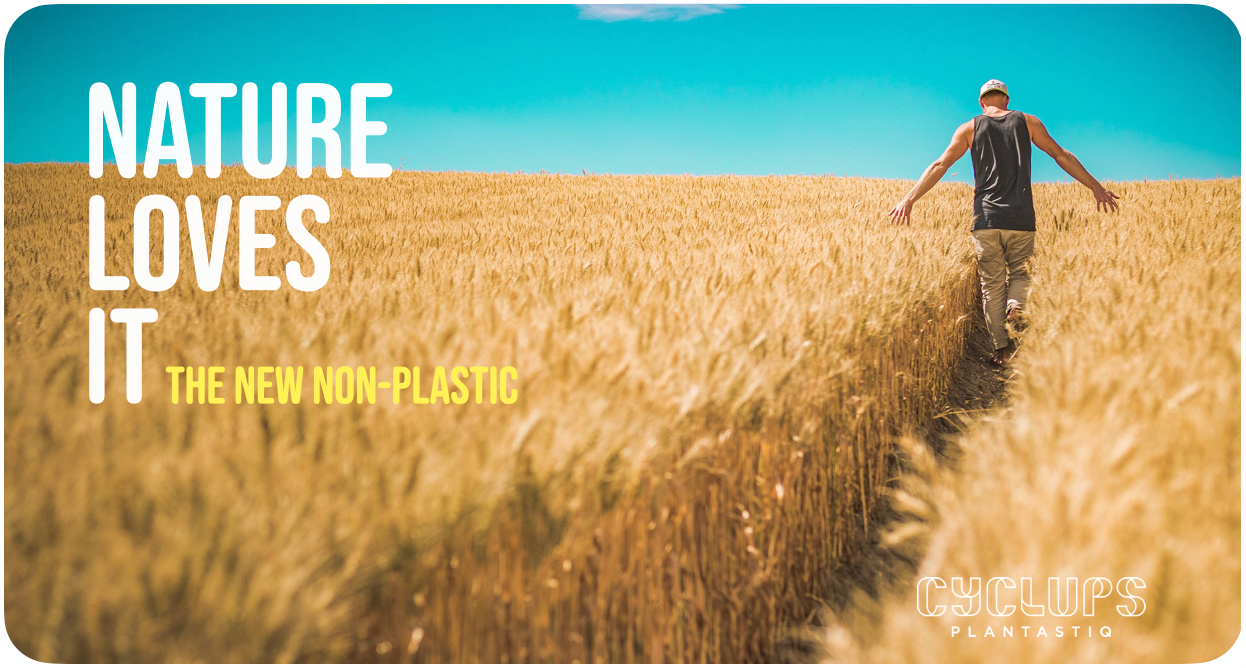
Bio based, biodegradable and compostable – What is the difference?
Under the guise of sustainability, we are constantly confronted with different processes, materials, and technical terms. In order to push plastic products and packaging out of the market, alternative materials such as bamboo, wheat or paper are increasingly attractive. They are advertised as bio-based, biodegradable, or compostable - but what exactly does that mean and what is the difference between the technical terms that initially sound the same?

Bio-based
The term bio-based solely refers to the material that was used to produce the product and in contrast to biodegradable and compostable, it does not provide information about what happens to the product at the end of its life. Usual plastic items are made from fossil-based materials, whereas bio-based items refer to renewable biomass, such as corn, wheat, rice, or potatoes. Generally, not all bio-based products are automatically biodegradable or compostable, even though they potentially could be.

Biodegradable
Biodegradable products are not necessarily bio-based, they can also be based on fossil materials. The key difference between the meaning of bio-based is that it provides information about what happens to the products and the end of its lifecycle. Biodegradable indicates that the material may be converted back into natural components such as carbon dioxide, biomass, and water, but is not attached to a certain timeframe. This is done through a chemical process carried out by microorganisms in the environment. In the case of biodegradable plastics, the environmental conditions must typically be fairly precise in order for them to degrade properly. Biodegradable plastics are intended to breakdown in certain environments, such as marine habitats, sunlight, soil, industrial composting facilities, and backyard home compost. But if this happens as it is intended in real life is highly doubtful.

Compostable
This process is a faster and more controlled form of biodegradation and therefore also refers to the end of the product lifecycle. All compostable items are also biodegradable – but not all biodegradable items are necessarily compostable. The biomass decomposes into a toxin-free, nutrient-rich soil leaving no trace of the product. Items that are referred to as 100% compostable usually break down within 90-180 days, whereas biodegradable products can take thousands of years to decompose. And in this incredibly long time for a product to biodegrade, still a lot of damage can be done to wildlife.





Leave a comment
This site is protected by hCaptcha and the hCaptcha Privacy Policy and Terms of Service apply.